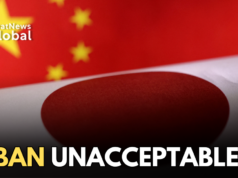In a message broadcast from the state-run television station and over Damascus Radio on Sunday afternoon, Syrian rebels claimed they had ended President Bashar al-Assad’s rule and freed political prisoners, and called on “the mujahidin and citizens to preserve the property of the state of free Syria.”
Meanwhile FlightRadar reported that a Syrian Air aircraft which had taken off from Damascus around the time the rebels were entering the city and flew towards the coastal region, a stronghold of Assad’s Alawite sect, before making an abrupt u-turn and dropping off the radar.
Several Syrians said they suspect Assad was aboard. Others, however, said Assad had fled to either Moscow or Abu Dhabi hours before the fall the Damascus. Later in the evening, Moscow clarified that Assad and his family had indeed been given asylum in Russia.
Dr Waiel Awwad a veteran international journalist who has been covering conflicts, particularly in West Asia, since 1979, had told StratNewsGlobal after the fall of Aleppo last week that the fall of Damascus was was a distinct possibility.
He joins us live to share his thoughts on what this development means for the region already mired in conflict. What are Iran’s options? Why did Russia not come into defend Syria like it has earlier?
Is the victory by the rebels, who are mostly former Al Qaeda and ISIS activists, a shot in the arm for other jihadis worldwide, particularly those in Pakistan and Afghanistan? After all, Abu Mohammed al-Jawlani, the leader of Hayat Tahrir al-Sham, the main rebel faction, is a former Al Qaeda member who was designated as a global terrorist by the US in 2013, with a $10m bounty on his head. So what happens to Syria now?
Watch the full interview to find out.
In a career spanning three decades and counting, Ramananda (Ram to his friends) has been the foreign editor of The Telegraph, Outlook Magazine and the New Indian Express. He helped set up rediff.com’s editorial operations in San Jose and New York, helmed sify.com, and was the founder editor of India.com.
His work has featured in national and international publications like the Al Jazeera Centre for Studies, Global Times and Ashahi Shimbun. But his one constant over all these years, he says, has been the attempt to understand rising India’s place in the world.
He can rustle up a mean salad, his oil-less pepper chicken is to die for, and all it takes is some beer and rhythm and blues to rock his soul.
Talk to him about foreign and strategic affairs, media, South Asia, China, and of course India.




